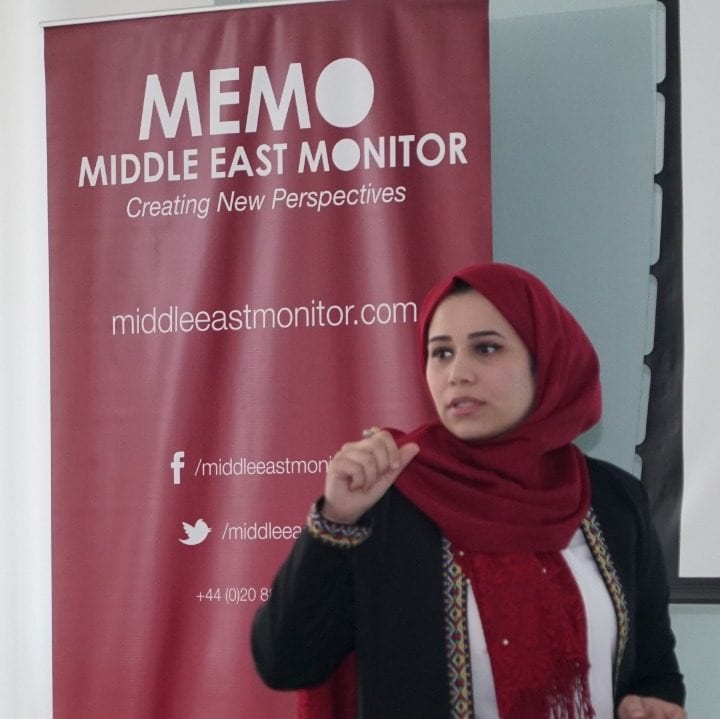Brazil’s biggest city, Sao Paulo, celebrated the country’s 26th Festival of Immigration over the weekend at the Immigration Museum. The festival at one of the country’s leading museums was born out of the desire of communities to preserve the heritage of immigrants and share their varied cultures. It provided a moment of sharing, coexistence, and learning that brings in its essence the diversity and integration of different cultures.
More than 50 communities came together for three days from 17 to 19 December, including Palestinians, Syrians, Lebanese and Egyptians. The festival coincided with International Migrants Day, which was approved by the UN General Assembly to be held on 18 December every year.
The 70,000-strong Palestinian community had a prominent presence at the festival. It provided a rich opportunity to present their food, music, traditional costumes, dance and handicrafts to a wider audience. Palestinians have lived in Brazil since the late nineteenth century, and were able to display not only their style of music and dance, but also artefacts of the community’s long history in the country.
INTERVIEW: Documentary film ‘Brazilian Palestine’ boosts the Palestinian cause
Palestinian embroidery, seen most frequently on dresses at the festival, has been added to UNESCO’s list of Intangible Cultural Heritage. The UN decision was timely, given Israel’s efforts to appropriate and eradicate Palestinian culture and identity. That is why it was important for the Palestinians in Brazil to take part in this particular festival; they wanted to show that their culture is very much alive and that they retain their links with their homeland, which they hope will be free again one day.
![Lady in traditional dress in concert [Nahawand/Música Árabe/Facebook]](https://i0.wp.com/www.middleeastmonitor.com/wp-content/uploads/2021/12/62381852_2350139448607935_1270138953185361920_n.jpg?resize=238%2C333&ssl=1)
Lady in traditional dress in concert [Nahawand/Música Árabe/Facebook]
She added that the festival is an essential part of the local calendar in the city of São Paulo, celebrating the importance of immigration to the state in particular, and Brazil in general. “This illustrates the importance of the immigrants who have contributed to the construction of the mosaic of the Paulista identity.”
According to Bruna Kadletz, founder of Círculos de Hospitalidade (Circles of Hospitality), a Brazilian NGO that develops social, cultural, and educational initiatives for refugees, “The powerful bringing together of migrants and host societies is a way to confront xenophobia.” Festivals such as this one in São Paulo are crucial to promote peaceful coexistence. “We also understand that migrants have an important role in contributing to the economic and cultural development of societies. The Palestinian diaspora in Brazil, for instance, has contributed a lot to our development.”
It is no coincidence that the festival is organised by the people for the people. “Every year through this festival,” Almeida told me, “we try to make immigrants feel that they belong to this society and they are able to integrate and provide more. For us, we want to show the audience across our country the great diversity of the original countries of these immigrants.”
With the occupation of their homeland an ongoing reality, the Palestinians in Brazil know that they have a duty to preserve and share their culture. The Immigrant Festival and similar initiatives in Brazil allow them to do just that.
The views expressed in this article belong to the author and do not necessarily reflect the editorial policy of Middle East Monitor.


![Lady in traditional dress in concert [Nahawand/Música Árabe/Facebook]](https://i0.wp.com/www.middleeastmonitor.com/wp-content/uploads/2021/12/cover.jpg?fit=960%2C641&ssl=1)

![3 Market stalls [Museu da Imigração/Facebook]](https://i0.wp.com/www.middleeastmonitor.com/wp-content/uploads/2021/12/3-2.jpg?w=447&h=222&ssl=1)
![22ª-Festa-do-Imigrante-Bárbara-Almeida-Doces-1140x620 Market stalls [Museu da Imigração/Facebook]](https://i0.wp.com/www.middleeastmonitor.com/wp-content/uploads/2021/12/22a-Festa-do-Imigrante-Bárbara-Almeida-Doces-1140x620-1.jpg?w=408&h=222&ssl=1)
![14964462485931f528d3f01_1496446248_3x2_xl Market stalls [Museu da Imigração/Facebook]](https://i0.wp.com/www.middleeastmonitor.com/wp-content/uploads/2021/12/14964462485931f528d3f01_1496446248_3x2_xl.jpg?w=333&h=222&ssl=1)








